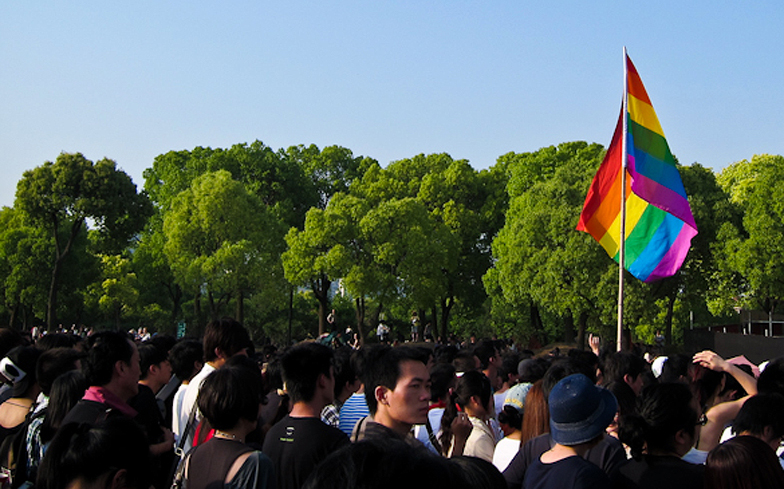
China still lacks same-sex marriage and anti-discrimination laws.
A new report from Daxue Consulting has found that China has the largest LGBTQ economy in the world. This comes in both terms of population, estimated to be between 60 million and 70 million, and that current worth, estimated to be between £230 billion and £390 billion.
However, the report said that this market is “untapped” due to the relative privacy of the LGBTQ community in China. A 2015 study by the UN found that only 5% of LGBTQ people in China were out to their families, and although places like the UK have a well-known gay scene, in China it’s only spread through word of mouth.
However, LGBTQ-themed advertisements could be changing this, with an advert from Tmall earlier this year for the Lunar New Year heavily featuring a same-sex couple.
Speaking to Reuters, Allison Malmsten, a China analyst at Daxue Consulting, said: “Young Chinese people do appear to be opening up and accepting LGBT+ culture.”
About the advert, she added: “Many of these companies have young consumers and showing inclusivity simply makes an ad memorable.”

However, despite the success of the advertisement, Chinese rules on freedom of expression still bans “abnormal sexual behaviours” from being displayed in online content, something that homosexuality is defined as in the country.
China has banned gay characters from appearing in television shows, and cut a gay kiss from Alien: Covenant. In 2018, Mango TV was banned from airing Eurovision after it cut Ireland’s performance from the Eurovision semi-finals because of two same-sex dancers.
However, although LGBTQ visibility in advertising could increase in China, Suki Chung, an LGBTQ rights campaigner with Amnesty International, warned that many companies would simply ride the “pride bandwagon” and contribute nothing to LGBTQ rights.
“LGBTI marketing ads will become a growing trend in the greater China region, given the lucrative pink dollars and the look-good image of being a ‘social change maker’ or pioneer.
“Real change is still far away given that the Chinese government still imposes tight controls … but the power of online netizens and LGBTI communities in fighting back against the government propaganda is strong.”
Last August, the Chinese government announced it would not legalise same-sex marriage. When pressed by journalists as to whether China would follow Taiwan,
Zang Tiewei, the country’s spokesman for parliament’s legal affairs, said the current rule “suits our country’s national condition and historical and cultural traditions.”
Tiewei added: “As far as I know, the vast majority of countries in the world do not recognize the legalisation of same-sex marriage.”



